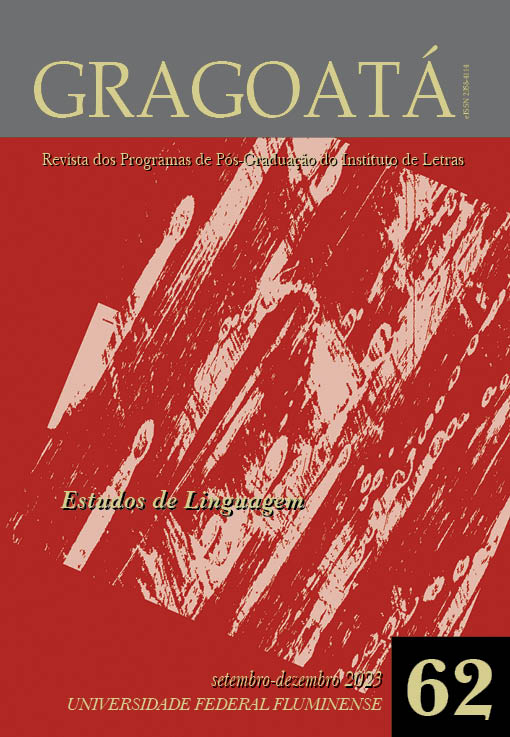The controversial conviviation in the midst of the Covid-19 pandemic – a discursive semiotic view on the relationships between the self with the other
DOI:
https://doi.org/10.22409/gragoata.v28i62.58331.ptKeywords:
Tensive Semiotics, Affect, Covid-19, Controversy, PandemicAbstract
If the coexistence and dialogue between ego and alterego is conflicting, and the differences seem to be exacerbated in this pandemic period by Covid-19 that we are going through, in the midst of this conjuncture, what is the degree of admission in our existence, or in the various spheres of outlets of everyday decisions, before those we call the Other? Is this Other, discursively (re)constructed at all times, forgotten and/or silenced? Presenting possible answers to these questions is the general objective of this work. Specifically, the objective is to point out, through the rhetorical strategies of persuasion involving the affection present in the observed utterances, a proposal for measuring the level of assimilation of the Other in the life of the Self. Based on the so-called Tensive and Sociosemiotic semiotics, methodologically, meaning effects are pointed out in analyzes of utterances extracted from reports that deal with: delivering food to homeless people; the production of a booklet on health care in the Guarani language; a complaint made to Justice about racist comments referring to indigenous people; and about the university extension project to welcome immigrants. As a result of the notes, it can be inferred that the Self-Other relationship is not harmonious, but one of dissent, and that, based on the analysis of affection, following Zilberberg and Landowski, it can be graded.
Downloads
Downloads
Published
How to Cite
Issue
Section
License
Copyright (c) 2023 Gragoatá

This work is licensed under a Creative Commons Attribution 4.0 International License.
Authors who publish in Gragoatá agree to the following terms:
The authors retain the rights and give the journal the right to the first publication, simultaneously subject to a Creative Commons license CC-BY-NC 4.0, which allows sharing by third parties with due mention to the author and the first publication by Gragoatá.
Authors may enter into additional and separate contractual arrangements for the non-exclusive distribution of the published version of the work (for example, posting it in an institutional repository or publishing it in a book), with recognition of its initial publication in Gragoatá.

Gragoatá is licensed under a Creative Commons - Attribution-NonCommercial 4.0 International.











